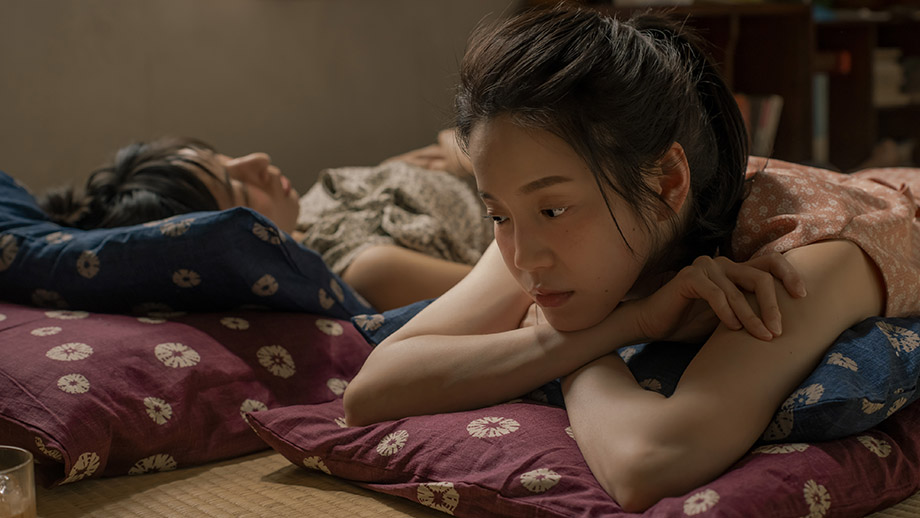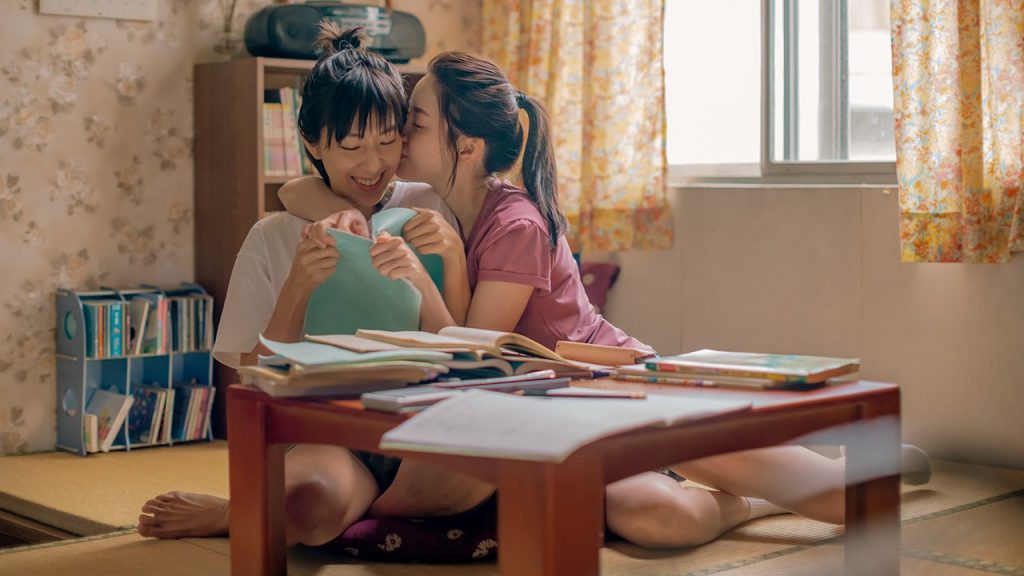BFI’s Flare is back in town! The FilmSoc Blog is back for the 36th edition of the city’s largest LGBTQIA+ film festival, delivering a look at the hits and misses of the 2021-22 season.
At the start of the film, Yi Ming watches one of the brides in a lesbian wedding as she is asked to describe the couple’s first meeting as a flower. The metaphor persists as Yi Ming and Ting Ting’s relationship blossoms throughout the drama.
“A burning lily, because lilies represent the purity in a lesbian relationship, and she has always been the one who sets me aflame.”
Fragrance of the First Flower (2021) (第一次遇見花香的那刻)is a Tawainese drama series directed by Angel I-Han Teng, whose work consists primarily of short films and LGBTQ-themed cinema. In the six 15 minute episodes, Yi Ming (Lin Chen Xi) and Ting Ting (Lyan Su) are ex high-school friends who reunite as adults and rediscover the feelings they had in the past for each other. They couldn’t pursue a relationship as teenagers because of fear and homophobia, but now Yi Ming has a husband and a young son, and this poses a challenge to their budding relationship since they both struggle to stay true to themselves and their desires.
The plot itself is nothing revolutionary, but what I found most striking was the incorporation of arthouse subtlety within the traditional episodic drama format. Drawing on the strengths of popular Taiwanese and Korean dramas, Teng blends soft, romantic visuals with clever artistry, layering the show with visual metaphors and echoing themes while allowing it to remain accessible and palatable to the general public. In the very first episode, subtle framing is used to highlight how trapped Yi Ming feels in her socially-approved life and marriage, while the streetlights fading in and out of view highlight their tremulous, hesitant emotions.

As a character-focused drama, the episodes are dominated by flattering medium close-ups, but this does not stop Teng from inserting poetic moments in the backdrop of modern Taiwan, all of which add to the show’s sense of emotional beauty. Flitting between day-to-day scenes of their adulthood and flashbacks, the whole tone of the show is gentle and sentimental, delicacy blooming across every frame. It’s very easy to get drawn into the show’s warm, muted universe, and even easier to get swept away by the feelings of the two protagonists, both of whom are almost immediately likable. Ting Ting buoys the show with a cheerful, bubbly sweetness while Yi Ming, level-headed and quietly charming, acts as her character foil while they share the same warmth and sincerity. The show pivots around the lasting affection between them, and it is almost inevitable that audiences will root for them and the possibility of a happy ending.
It must be acknowledged, however, that the show’s plot relies on rather tired melodrama tropes, perhaps in a bid to make the topic relatable to the general public. The overburdened wife and the rich but neglectful husband, romantic miscommunication, the temptation of an affair: these tropes did not significantly detract from the show’s quality, but they did flatten the emotional weight of some of its scenes. Yi Ming’s husband is largely reduced to the role of “emotionally unavailable pig-headed heterosexual male” (whom I couldn’t put a name on until I searched the wiki page), and it is tiring to see yet another LGBTQ+ relationship presented as an illicit affair. Even in the traditional drama format, I felt that there was room to experiment more and delve deeper into certain elements of the story. Bold themes such as Yi Ming’s relationship with her autistic son and Ting Ting’s exploration of her sexuality were only hinted at but never fully developed, and perhaps with longer screentime, there would be greater room for exploration.
Nonetheless, I greatly enjoyed how the melodrama was presented and the emotional complexity of each scene. There is a build-up of conflict between Yi Ming and her husband, but it never really erupts into a shouting match, just a tense confrontation of the truth which feels as gut-wrenching as it is necessary. In a similarly muted fashion, the emotions between the two ladies are conveyed through lingering glances and coded language — Ting Ting planning for a future that includes Yi Ming, Yi Ming’s fond glances, the way she stops saying “I’m fine” around her. With how over-sexualised lesbianism is portrayed in mainstream media, the fact that Fragrance of the First Flower centres their relationship on playful affection and emotional intimacy is a breath of fresh air.

The two women are undoubtedly beautiful and they do not shy from intimacy, but unlike the show’s more exploitative predecessors in lesbian cinema (cough, Abdellatif Kechiche, cough), the camera is consistently focused on their emotions, blurring and even skipping the physicality of it. As their turbulent yet incredibly wholesome relationship blooms throughout the episodes, the eventual confession in the last episode feels hard-earned. The show does not gloss over the fact that they were having an affair; they do suffer its consequences, but love remains a painful declaration of loyalty for Ting Ting and an act of immense courage for Yi Ming. It is thus poignant that Lin Chen Xi, in a post-production interview, says that Fragrance of the First Flower is meant to provide audiences with a “temporary healing, and accompany those going through a significant period of their lives”.
As Teng describes in interviews, the show is meant to capture the “untold stories of friends around her”. The result is an intimate and heartfelt drama, both artfully subtle and accessible to all audiences. Like the metaphor blooming through the two women’s relationship, Fragrance of the First Flower suffused with a kind of emotion that, while invisible, lingers in the memory long after the show ends.
Watch the trailer for Fragrance of The First Flower here:




